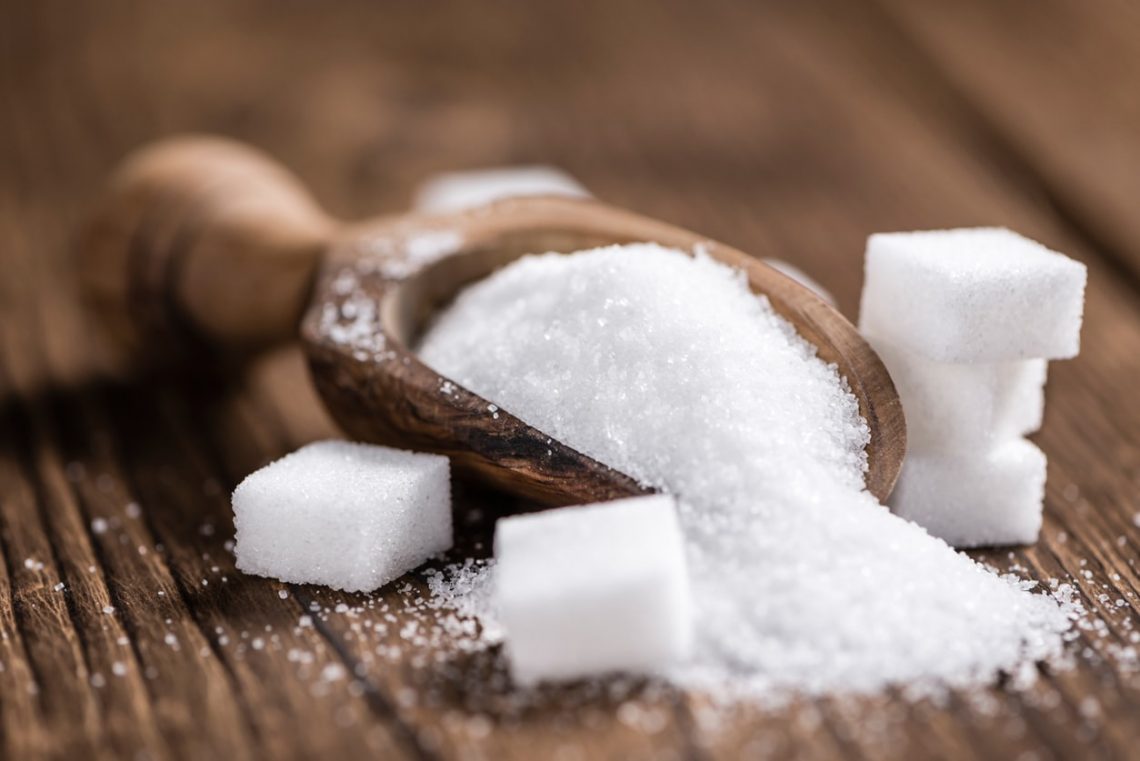“Sugar is eight times as addictive as cocaine. And what’s interesting is that while cocaine and heroine activate only one spot for pleasure in the brain, sugar lights up the brain like a pin-ball machine.”
~Dr. Mark Hyman
Before I take our youngest daughter on a long drive across the state this week for her critical health check-up, I need to have our SUV serviced. Oil change, tire rotation, and fluid levels will all be checked. It’s critically important that the vehicle that is responsible for transporting our family day in and day out is performing as it should, in top notch condition.
Unfortunately, I’m not always as diligent about my own health, especially when it comes to my sugar-addictive habits. I’m afraid that I have been guilty of taking better care of the car than my own body. I forget that this body is a vehicle too. It is the physical force that has made a lifetime of work, play and mothering possible. More importantly, this body also helped me to create a life that is authentically mine.
When I forget how important my body is, I begin to take its maintenance for granted. It becomes so damn easy to eat the sugary substances that I crave – Chai lattes , a hand-full of M&Ms , old-fashioned cobblers, and fresh-out-of-the oven ginger cookies. Yet, eating this stuff provides only a fleeting pleasure. Afterwards, my body and I are left to deal with the guilt, the weight gain, and the lack of energy caused by all of those empty carbs.
The short term satisfaction that sugar gives is far outweighed by the damage that sugar does to the body. Chances are you already know this. Yet, like me, there are times when you still overdo it.
Is there such a thing as a healthy sugar alternative?
Deadly and Addictive
Sweeteners of any kind may contain sucrose (simple sugar) or fructose (fruit sugar). The prevalent knowledge today claims that fructose is the most damaging as it has the greatest effect on blood sugar levels, and those wacky blood sugar levels are where all the problems start.
The list of major ailments caused or contributed to by the use of sugar include:
● Obesity
● Heart disease and stroke
● Hypertension (high blood pressure)
● Diabetes
● Some cancers
● Gallbladder dysfunction
● Sleep disturbance issues
● Gout
● Osteoarthritis
Add to the above immune dysfunction, tooth decay, gum disease (which can cause heart disease), and an increase in stress response.
Even worse, sugar is not only one of the worst things we can consume, it is also one of the most addictive. Sugar is as addictive as heroin or cocaine, because it activates the same pleasure centers in our brain as those illicit drugs do.
 This addictive property is borne out when you look at American sugar consumption. The American Heart Association recommends no more than 6 teaspoons of added sugar daily for women and 9 teaspoons of added sugar daily for men. (This is in addition to sugar that occurs naturally in foods like milk and fruit.) Yet, the average American consumes almost 20 teaspoons of added sugar every day. This adds up to a whopping 66 pounds of added sugar every year!
This addictive property is borne out when you look at American sugar consumption. The American Heart Association recommends no more than 6 teaspoons of added sugar daily for women and 9 teaspoons of added sugar daily for men. (This is in addition to sugar that occurs naturally in foods like milk and fruit.) Yet, the average American consumes almost 20 teaspoons of added sugar every day. This adds up to a whopping 66 pounds of added sugar every year!
Truth be told, we could all do without any added sugar in our diet, no matter what form that sugar may take. Yet, we’re human. When it comes to food, were hardwired to have specific preferences. Our ancestors needed quick and efficient calories in order to survive. Fat and sugar are calorically dense. So, any rare source of sugar that was found in the natural environment, such as berries and fruit, automatically became a preference. The childhood stories of a bear doing anything to get a taste of honey is simply a reflection of our own genetic preference for the big and easy calories in sugar.
The average American consumes almost 20 teaspoons of added sugar every day.
This adds up to a whopping 66 pounds of added sugar every year!
Despite this, we are no longer dependent on the wild to provide our nutrition. Instead, we are increasingly dependent on a corporate food chain to supply us with what we eat. Unfortunately, our collective health is not as attractive as a healthy bottom line. That’s why as mothers and grandmothers, we have a huge responsibility to foster healthy eating habits in our children and grandchildren. A great place to start is in one of the most obvious of places – sugar consumption. The culprits are insidious; breakfast cereals, yogurt, prepackaged snacks, sugary fruit drinks, products containing high fructose corn syrup – the list goes on and on.
Making smart choices for ourselves, and for those we love, makes perfect sense. Avoiding simple sugar is something we all need to do, but then the question must then be asked: “Are there any truly healthy natural alternatives to be found?”
The answer is a resounding yes. And no.
Sugar is one of the most damaging substances we can put into our bodies. It is devoid of nutrients. It plays havoc on our metabolism by way of insulin in the bloodstream. Processed white sugar and high fructose corn syrup are the worst offenders in this respect. However, there are natural sweeteners that have less of a metabolic impact. So, while no added sugar is best, these healthier sweetening alternatives can be a better choice for your health than the processed alternatives.
Healthy Sweetener Alternatives
We cook, and eat, for both pleasure and sustenance. That being the case, let’s review the eight most popular natural sugar substitutes, and take a look at the good, the bad, and the ugly about each.
1. Maple Syrup
Real maple syrup is comprised of one ingredient – maple tree sap that has been boiled down to make syrup. It has a taste and flavor far superior to the artificial stuff you’ll find on your grocer’s shelves, and like anything naturally-derived and in limited supply, it can be expensive.
Maple syrup contains antioxidants, reduces immune system responses such as inflammation, and has a low fructose level. It can be used not only as a sweetener, but a flavor enhancer as well.
2. Agave
Agave is also made from sap, and is intensely sweet. You don’t really need to use much of it. That’s the good news. The bad news is that it is very high in fructose. Agave is available in a syrup or nectar that you’ll use drop by drop.
3. Molasses
Molasses is a goldmine of minerals, and is especially healthy for those who don’t eat red meat, as molasses contains iron. Other minerals found in molasses include copper, magnesium, potassium, zinc, and calcium. Alas, molasses also has very high fructose levels, so weigh that against the mineral content to decide whether it’s right for your use.
4. Raw Honey
We’re not talking about the honey that comes in the little plastic bear, but raw honey – and the less processing, the healthier it is for you. Raw honey has lots of nutrients, boosts your immune function, and is also used as a digestive aid.
Many people use raw honey that is harvested by local bees to ward off immune system responses during allergy season. Local honey contains minute amounts of regional allergens that may be affecting you. This exposure homeopathically helps strengthen immunity to those allergens.
5. Stevia
Produced in both liquid and powder versions, stevia is fantastic to cook with, contains no calories or carbohydrates, and is considered a low-glycemic sweetener having little to no effect on blood sugar levels. Be careful when choosing which stevia to purchase, though, as powdered stevia may have additives, whereas liquid stevia is usually a pure extract.
6. Lo Han
Lo Han is derived from the Chinese monk fruit, and comes in both powder and concentrated liquid form. It contains no calories, and is said to be rich in antioxidants. It also boasts no aftertaste or bitter flavor, and can be used exactly as you would use sugar for cooking and baking. It tends to be on the more expensive side, but is readily available for delivery online.
7. Brown Rice Syrup
Brown rice syrup is probably my least favorite of the bunch. It contains no nutritional value, but also contains no fructose. All rice has some level of arsenic in it, and brown rice has the most, so for this reason, I’d say there are better choices out there for a sweetener. Just because it’s natural doesn’t make it healthy, in this case.
Get more joy, meaning and authenticity straight to your inbox.
8. Date Sugar
Made from – you guessed it – dates, date sugar has a bit of a lumpy texture, and it doesn’t melt like regular sugar. You wouldn’t use this type of sweetener in your tea because of the texture, but it is a wonderful substitute for brown sugar in recipes.
Date sugar is high in potassium and antioxidants, but does have a high fructose level.
Overall, I’m loving lo han and honey for adding to coffee and tea, and lo han wins again for use in cooking and baking. Try as many natural sweeteners as you can so that you know what you prefer in which situation.
Be empowered in your choices and create your healthiest life!
Do you have a favorite sugar replacement? How much better do you feel when you are off of sugar? I can’t wait to hear from you.
Live Authentically-











I love your blog Jan. Thank you!
I prefer honey on many things. However after reading your blog I will also try maple syrup!!
I hope you love it, Francesca!